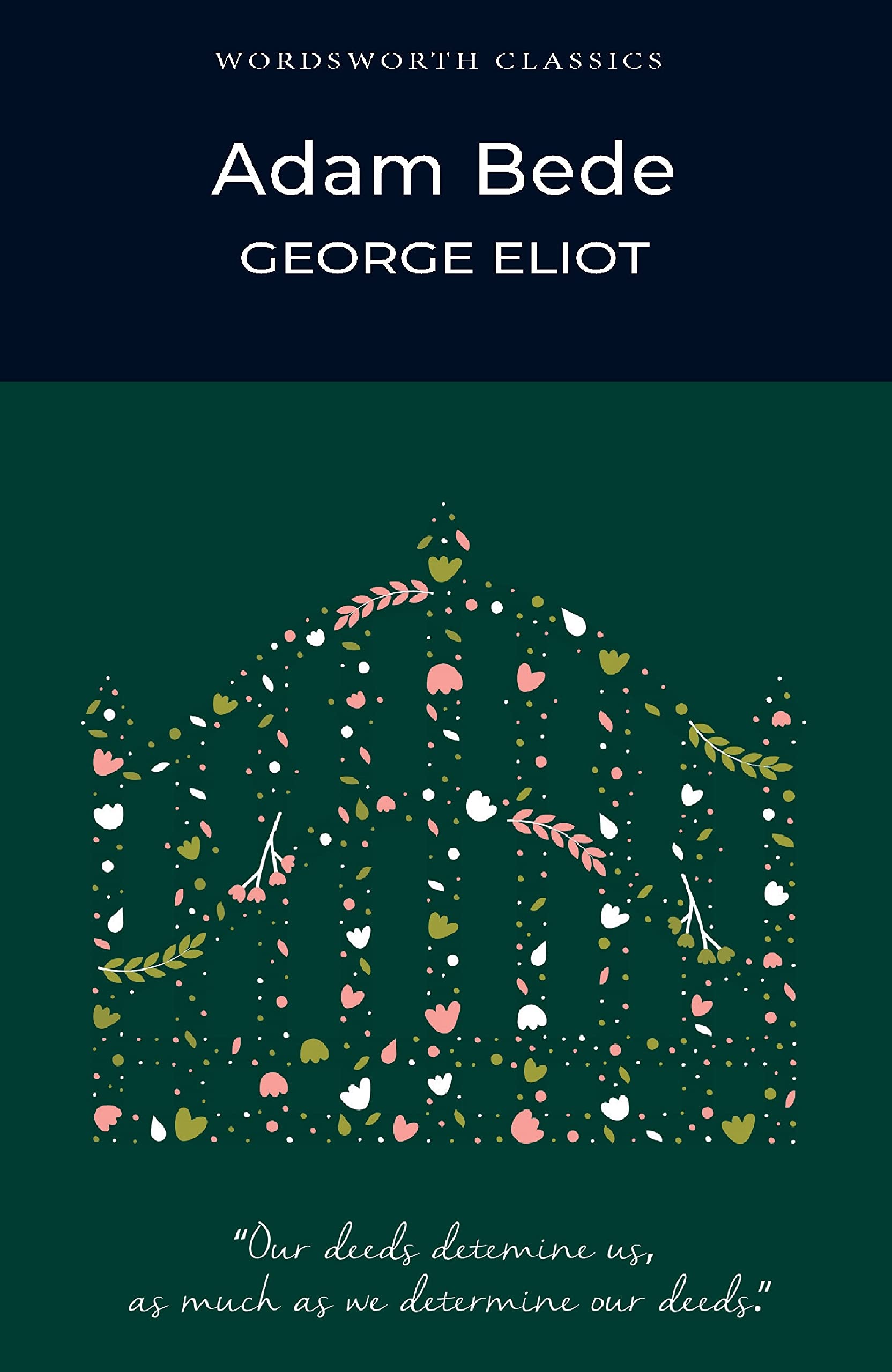Customer Services
Copyright © 2025 Desertcart Holdings Limited


Adam Bede
C**A
George Eliot's early novel
Beautifully written and composed. This novel offers an interesting glimpse into a rural society. Characters are deeply developed. Gripping and touching plot at one point. A special mention for Arthur Donnithorne who is far from being flawless but is entangled in a mesh of temptations and their consequences.
C**N
Fast service .
Thank you.
L**R
Adam Bede in Wordsworth Classic
I highly recommend this Wordsworth Classics edition because it has exhaustive end notes that so supplement your reading. Some notes are historical, and some delve into Methodist history because of Diana Walsh, the female Methodist minister, who is one of the main characters of this novel. As a Methodist I learned a lot about 19th century Methodism while enjoying this wonderful novel by George Eliot.
O**O
Bello!
Il libro è arrivato in buone condizioni. Adam Bede è il primo romanzo scritto da George Elliot (al secolo Mary Ann Evans) che narra di un mondo bucolico, con le sue tradizioni ed i suoi contrasti, mostrando uno scorcio sulla morale e gli usi dell'epoca. Sicuramente molto interessante e al livello dei suoi romanzi successivi! ☺️
S**S
Not Eliot's best, but its still Eliot...
Adam Bede is the third book by George Eliot I have read, and I am big fan of her work. I enjoyed this, but it is her first length novel and it shows. I read Mill on the Floss and Middlemarch previously and absolutely loved them, both are truly great literature. It is really an unfair comparison, but Adam Bede doesn't live up to the highest standard set up in those books.Saying that, there was much here to enjoy. The plot was admittedly slow to get going, very slow in fact and I came close to putting the book down a couple of times, but I am so glad I didn't. This seems to be a feature of Eliot's work, but the pay off for persisting is great. Once the plot kicked in it was gripping, and a brave direction to take given the time it was written. Then there are the characters. At first I found Adam himself a bit insipid and goody-goody, but by the end he was a much better rounded out character and I found myself more drawn to him. Dinah, Hetty, the Poysers, Mr Irwine, Bartle Massey - the list of interesting and very human characters goes on. The two I found myself most drawn to, though, were Seth and Arthur. I found Seth more appealing than his brother Adam - he just seemed more composed, dignified and charitable, despite being very put upon. Arthur is the scoundrel of the book and yet I really liked him. Eliot described his thoughts and feelings as if she had climbed inside his head, and hence all of his actions seemed so understandable, no matter how regrettable.The book is a charming depiction of a rural way of life we have now lost forever, a time when life was simpler and slower, yet the nature of human beings means it was no less dramatic. There are beautiful descriptions of farm and parish life. At times this gets a bit repetitive. After all, there are only so many times you can read a description of country scenery without starting to get a little bored. However, the standard of Eliot's prose is so high that this more than makes up for issues of this kind. She writes with such an easy yet intelligent pen, and doesn't treat her readers as simpletons but credits them with an understanding of the world, history, religion and so on which is greatly underrated in literature. It is the story and structure of this novel, rather than the writing, which are weaker than some of her better known work in my opinion.So what did I not like? Well, as I said before I didn't warm to Adam till much nearer the end of the book, and when a character is so central then it can make a book harder work. The book was also dominated, particularly in the early stages, by an exploration of Methodism, which is really not to modern tastes. I myself am religious, but even given this I found some of this a little dry. Whilst it was beautifully written, I wasn't sure what Dinah's sermon in the first chapters really added to the book. I do feel it is important that we have an understanding of religion, its origins and its importance in society, but at times I felt it was a little naively handled here. It was almost like Eliot had decided she wanted to explore this "theme" and in her desire to do so did it a little too overtly.As I have said earlier, the book was a slow starter and this does detract from the enjoyment in reading it somewhat. In the early chapters there is a lot of local dialect and "peasant" language used which I personally found quite hard to read. As the book progressed this became less of a problem, almost like Eliot found her style and tonal balance more as she went on, and I also "found the voice" in which such words were spoken and it became easier to read once I got used to it in this way.However, overall I would still say that Adam Bede is a fine and important book and deserves its classic status. Eliot is always worth reading, though if you are new to her work I would suggest starting with the Mill on the Floss before reading this, as it is a better example of her work and style. Would I read it again? Yes, and I reckon I would get more out of it next time around. That is usually a good testament to a book's quality in my view.
Trustpilot
4 days ago
2 weeks ago
1 month ago
2 weeks ago